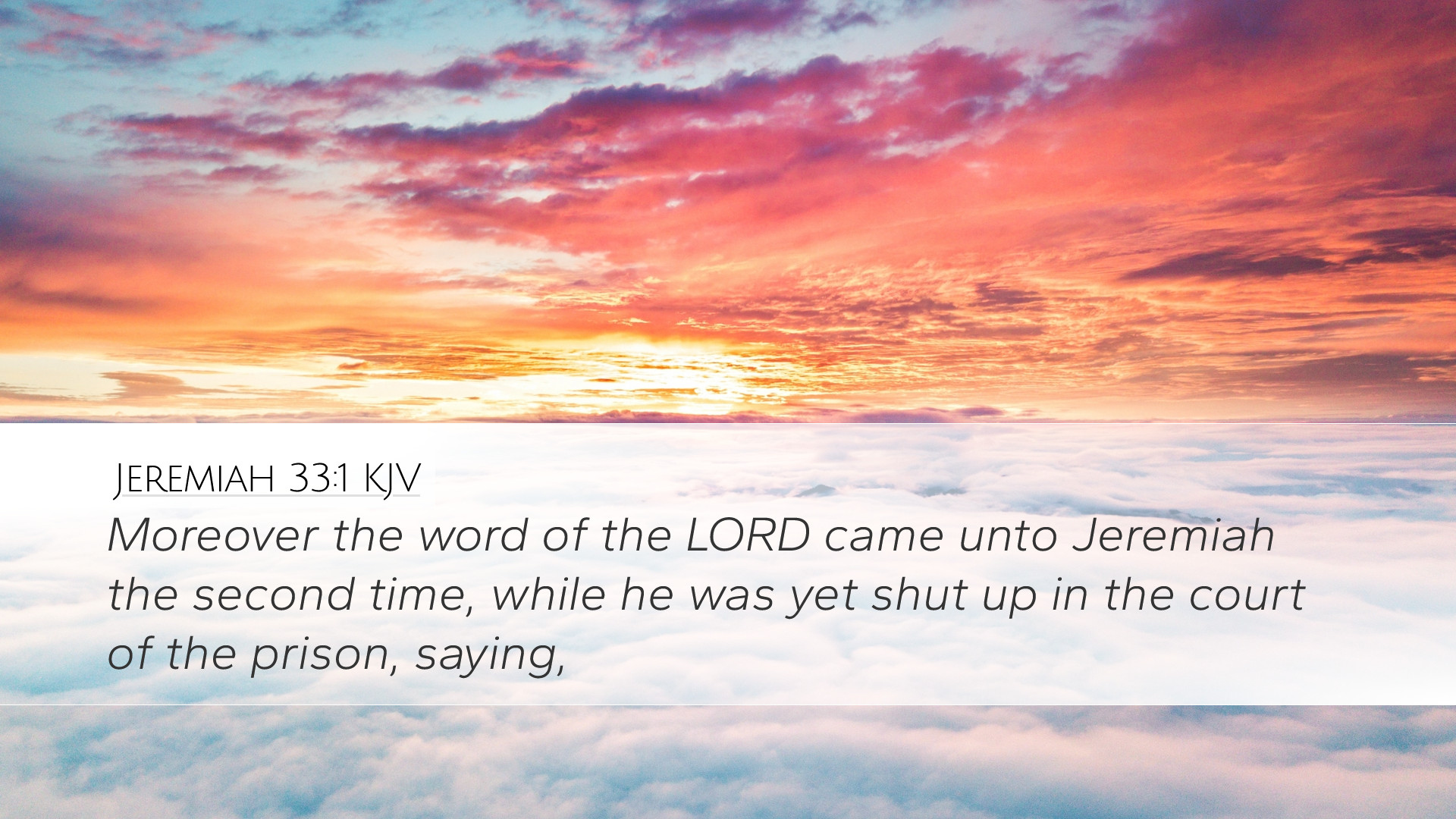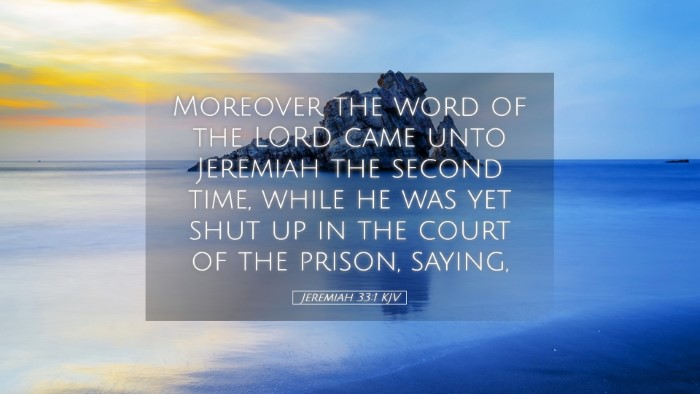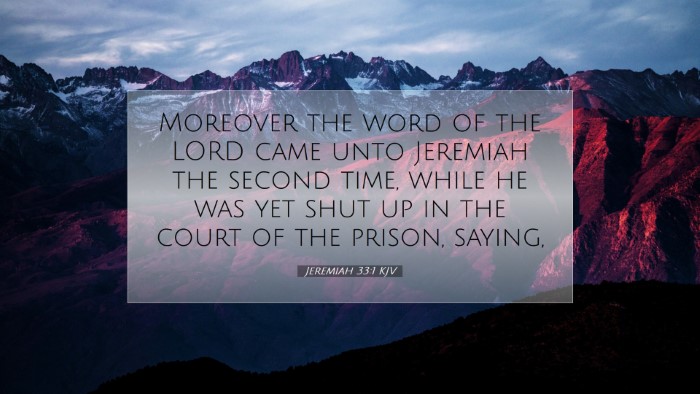Commentary on Jeremiah 33:1
Jeremiah 33:1 states: "Moreover the word of the LORD came unto Jeremiah the second time, while he was yet shut up in the court of the prison, saying." This verse provides a glimpse into the context and significance of God’s communication with the prophet Jeremiah during a time of great turmoil for the people of Judah.
Contextual Overview
The setting of Jeremiah 33:1 is crucial for understanding its implications. Jeremiah was imprisoned for his prophecies against the king and the people of Judah, reflecting a larger narrative of resistance against God's word. This verse marks a turning point in the discourse between God and His prophet, emphasizing God's continued presence and intention to communicate, even in dire circumstances.
Insights from Public Domain Commentaries
Matthew Henry's Commentary
Matthew Henry emphasizes the significance of the phrase "the word of the Lord came unto Jeremiah." He notes that despite Jeremiah's confinement, God’s word remains powerful and active. Henry points out that God’s revelations are not limited by human circumstances, indicating that divine communication can transcend barriers and notions of hopelessness.
- Divine Revelation in Isolation: Henry highlights that even in the darkest times, God is present and willing to speak. Jeremiah’s imprisonment did not hinder God's plan for revelation.
- Encouragement for the Prophet: This second communication serves to bolster Jeremiah's spirits, confirming that God had further plans to reveal that would ultimately bring hope and restoration.
Albert Barnes' Notes on the Bible
Albert Barnes offers a detailed examination of the themes in Jeremiah 33:1, focusing on the assurance of God’s promise amid affliction. He notes that the phrase "while he was yet shut up in the court of the prison" emphasizes the vulnerability of Jeremiah's state but also signifies the unwavering commitment of God to His servant.
- Encouragement to the Exiled: Barnes connects this event to the broader narrative of the Babylonian exile, suggesting that God's messages during this time are meant to provide hope for restoration for both Jeremiah and the nation.
- The Source of Hope: He posits that God’s words to Jeremiah are foundational for the future hope and restoration of Israel, showcasing the enduring love and covenant fidelity of God.
Adam Clarke's Commentary
Adam Clarke's analysis presents a rich theological reflection on the implications of God communicating with Jeremiah while he is imprisoned. Clarke points out that God remains in control and that His word is not constrained by human limitations.
- Understanding God’s Sovereignty: Clarke elaborates on God’s sovereignty, explaining that divine influence persists even in human prisons, suggesting that God’s will cannot be hindered by human opposition.
- The Nature of Prophetic Ministry: He remarks on the nature of Jeremiah's prophetic ministry, which functions in harsh reality but is deeply rooted in divine promise and active communication from God.
Theological Implications
Jeremiah 33:1 raises profound theological themes relevant to contemporary Christian praxis:
- God's Immanence: The verse illustrates God's immanence; He is involved in the lives of His prophets and, by extension, His people, even when they are in distress.
- Hope in Despair: The assurance of God’s word offers hope, reminding believers that divine communication is not limited by circumstances, no matter how dire they may appear.
- God's Faithfulness: The continuity of God's revelation serves as a witness to His faithfulness and commitment to His covenant people.
Practical Applications
This verse serves as a focal point for personal reflection, group study, and preaching:
- Encouragement in Trials: Pastors can draw from Jeremiah 33:1 to encourage congregants who feel isolated or imprisoned by their circumstances, emphasizing that God's voice is still speaking.
- Affirmation of Divine Promise: The verse can be used to affirm that God's promises endure regardless of current suffering or challenges.
- Call to Listen: This text challenges believers to actively seek God's word in their own "prisons," whether they be situations of sin, sorrow, or uncertainty.
Conclusion
Jeremiah 33:1 presents a rich tapestry of themes and insights essential for theological reflection and practical ministry. As God speaks to Jeremiah while he is imprisoned, it reassures us of His unwavering presence, His sovereignty over human affairs, and His intention to communicate hope and future restoration. For students, pastors, theologians, and scholars, this passage continues to serve as a reminder of faithfulness, divine purpose, and the transformative power of God’s word.


